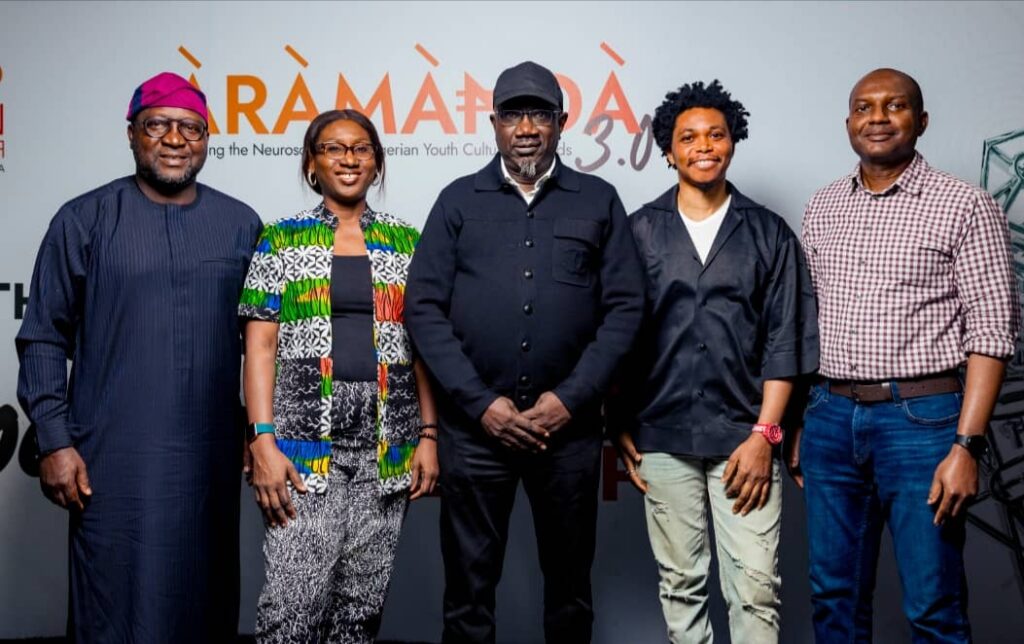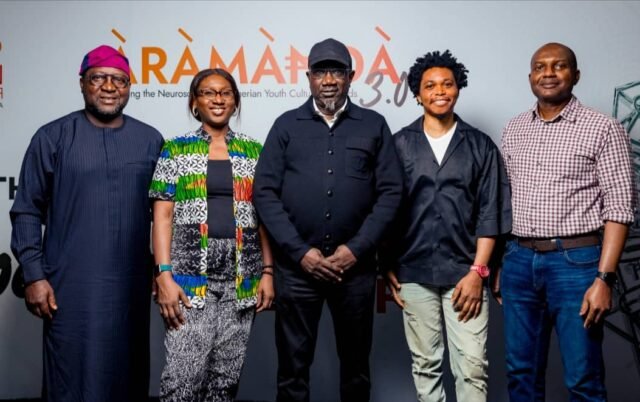In a pivotal gathering at The George, Ikoyi, Lagos, Chain Reactions Africa unveiled its third Youth Trends and Culture Report 2025, sending a powerful message: government, the private sector, and consumer brands must evolve to stay relevant—or risk being left behind.
Table of Contents

A Cultural Map of Nigeria’s Youth: More Than Stats
The report is not just another study—it is being described as a cultural map of Nigeria’s emerging generation. With over 70 million young Nigerians reshaping markets, influence, and governance, the document decodes their ambitions, contradictions, and creative energies.
This year’s launch was framed by the theme “Decoding the Next Wave of Culture, Business, and Influence”, signalling an urgent invitation. Chain Reactions Africa challenges institutions to rethink how they engage a cohort defined not just by age, but by a mindset—one fueled by hustle, borderless ambition, cultural fluency, and digital disruption.

Launch Day Highlights
- Keynote Address by Israel Jaiye Opayemi, Lead Strategist at Chain Reactions Africa, who set the tone with an assessment of youth disruption across sectors.
- Trend Presentation by cultural analysts Franklin Ozekhome and Eyo, who traced emerging patterns of influence shaping youth identity and consumption.
- Fireside Panel, moderated by Ayoola Ogunyomi, Group Strategy Director at Chain Reactions Africa, featuring voices like Anita Nwaezeapu, Adaobi Nwabuisi, Vincent Anani, and Oluwadamilola Olujide. Together they painted a layered portrait of Nigeria’s young people—as agents of change rather than passive recipients.
According to Lagos State’s Commissioner for Information and Strategy, Gbenga Omotoso, young people “are no longer just leaders of tomorrow; they are already shaping the present. Any government that fails to listen will be left behind.” His remarks underscored the call for institutional agility and responsiveness.
Five Key Themes Shaping the Youth Ecosystem
Drawing on insights from the report and subsequent discussion, five central themes emerge for stakeholders:
1. Mindset Over Demographic
Youth identity in Nigeria is not monolithic—it’s a mindset. Defined by ambition, multicultural engagement, and digital immersion, young people demand relevance grounded in authenticity.
2. Digital Fluency as Currency
The report showcases digital nativity not merely as academic literacy, but a pathway to commerce, culture creation, and activism. Social media is a battleground for influence and identity.
3. Cultural Hybridity & Borderless Self‑Expression
Nigeria’s youth are remixing tradition and global currents—fusing Afrobeat, streetwear, memes, and viral aesthetics. Brands and institutions must operate within this dynamic creative economy or be sidelined.
4. Social Consciousness Meets Market Influence
Young Nigerians are increasingly value‑driven, expecting brands, government, and media to align with causes such as climate action, equity, and transparency.
5. Institutional Relevance Requires Listening
Failing to respond to youth signals, from economic pain to social demands, risks alienation. The Commissioner’s admonition to government emphasised the urgency of youth-centered policy tools and community platforms.
Why the Report Matters
- A Market of Millions: Nigeria’s youth represent one of the fastest-growing consumer and creative segments in Africa.
- A Cultural Cohort: Beyond consumption, this generation shapes music, language, activism, and digital narratives.
- A Shift in Governance: The report suggests a widening gap between youth expectations and institutional inertia in both public and private sectors.
Chain Reactions Africa positions this report as an indispensable bridge between what brands think they know and what young people actually value and expect.
Implications Across Sectors
For Government
- Policy Design: Youth unemployment, education, and creative sector growth demand agile interventions.
- Communication: Government must shift from top-down messages to authentic, digitally-first engagement that resonates with youth ethos.
For Businesses & Brands
- Cultural Relevance: Products and campaigns must reflect young people’s language, values, and digital-first lifestyles.
- Social Alignment: Brands that champion justice, equity, and sustainability have a competitive edge—because youth expect it.
- Innovation Strategy: Brands that collaborate with youth creators, remix local culture, and lean into co-creation will sustain resonance.
Voices from the Forum
The conversation featured strategic minds articulating youth identity beyond simplistic stereotypes. Panelists emphasised that the Nigerian youth generation is hyperaware, highly mobile, culturally rooted yet globally networked—qualities shaping not just consumer behavior, but civic participation and creative expression.
What Stakeholders Must Do Now
Building on key findings and stakeholder commentary, here are immediate actions urged by the report:
- Embed youth intelligence in decision-making
Appoint young strategists within marketing teams and government departments to track trends in real time. - Activate youth-led narratives
Engage young content creators and thought leaders as ambassadors rather than just end-users. - Invest in digital-first experiences
From virtual events to social commerce—design touchpoints around how young Nigerians consume culture and information. - Demonstrate values through action
Align brand missions with trusted causes, backed by authentic storytelling, not token gestures. - Create cross-sector collaboration platforms
Forge partnerships between young innovators, NGOs, agencies, and policymakers for co-authored initiatives.

Looking Ahead: Building Relevance in a Youth‑Powered Future
Chain Reactions Africa has offered a timely intelligence asset: the Youth Trends Report 2025 is part research document, part strategic admonition. It codifies what many already sense: Nigeria’s youth no longer wait for permission—they shape demand, politics, and culture in real time.
Organisations that listen, learn, and act with immediacy are likely to thrive. Those who cling to outdated hierarchies or ignore these signals risk irrelevance.
Conclusion
This is not a youth-focused for tomorrow. It’s about understanding that today’s youth are already the market, the media, and the movement. As Chain Reactions Africa shows, relevance now means real‑time resonance. Whether in governance, brand-building, or media strategy, stakeholders must evolve—and quickly.
With 70+ million young Nigerians at the frontier of cultural and economic change, the message is clear: adapt or be left behind.
Join Our Social Media Channels:
WhatsApp: NaijaEyes
Facebook: NaijaEyes
Twitter: NaijaEyes
Instagram: NaijaEyes
TikTok: NaijaEyes








































